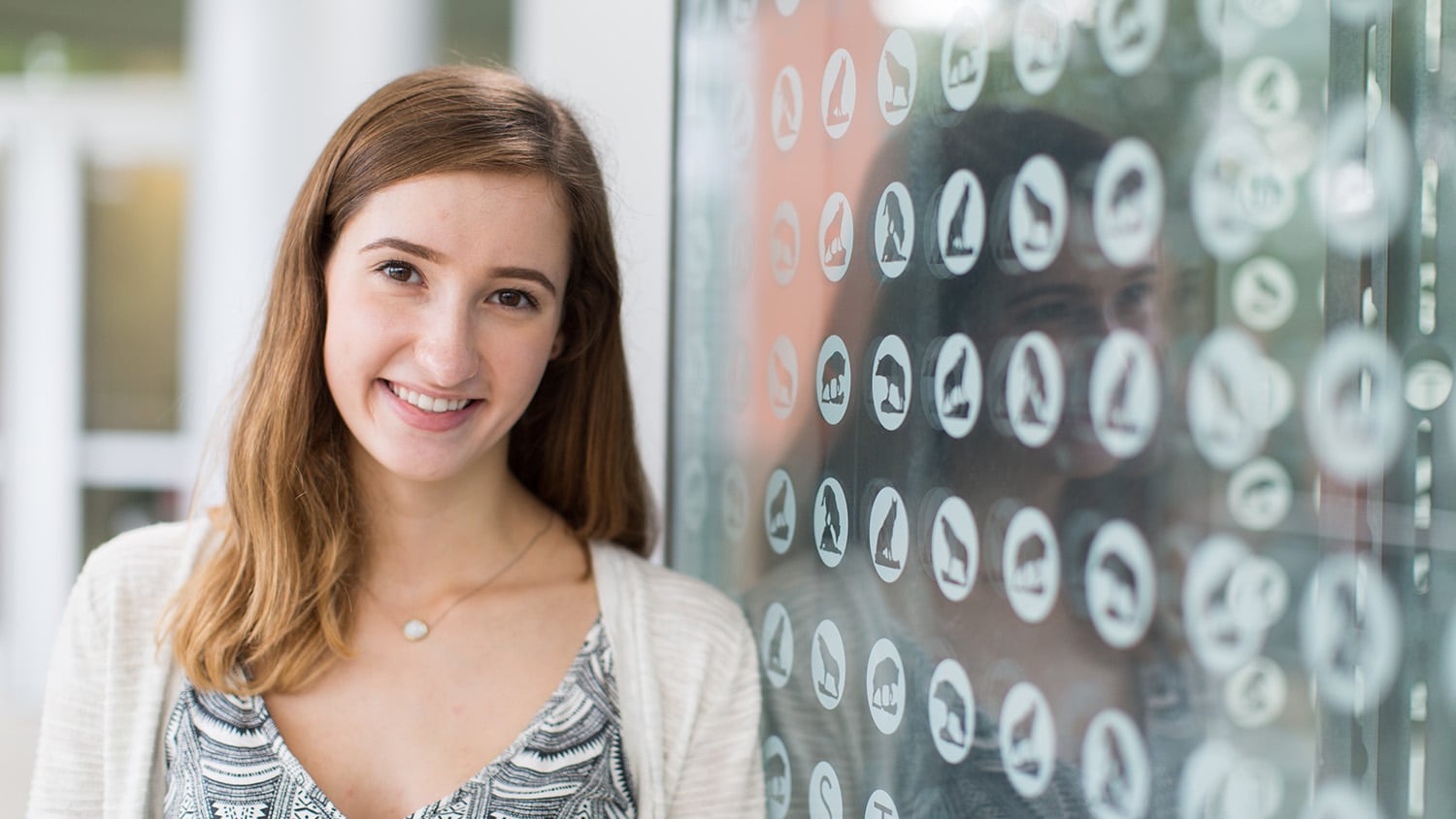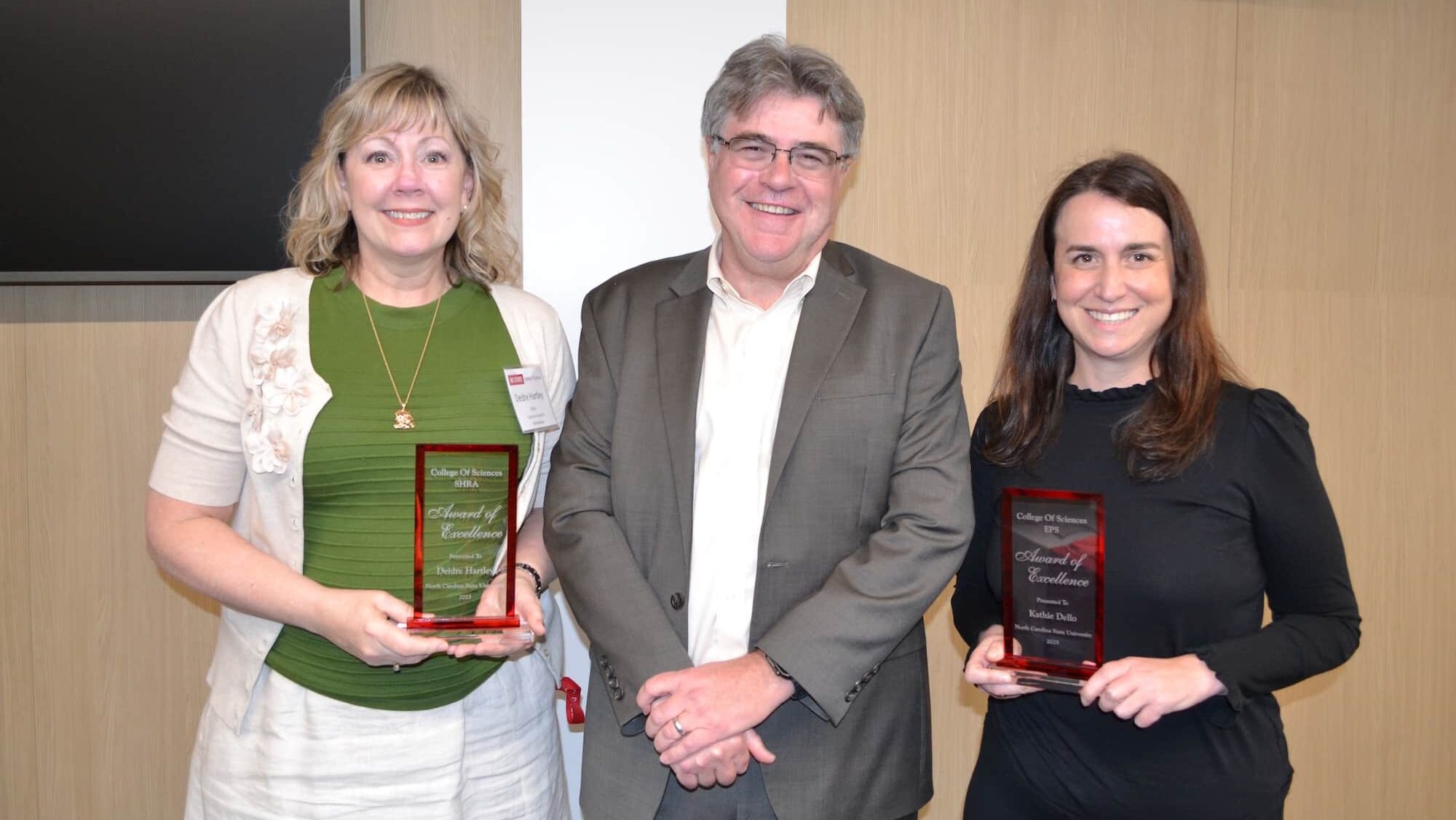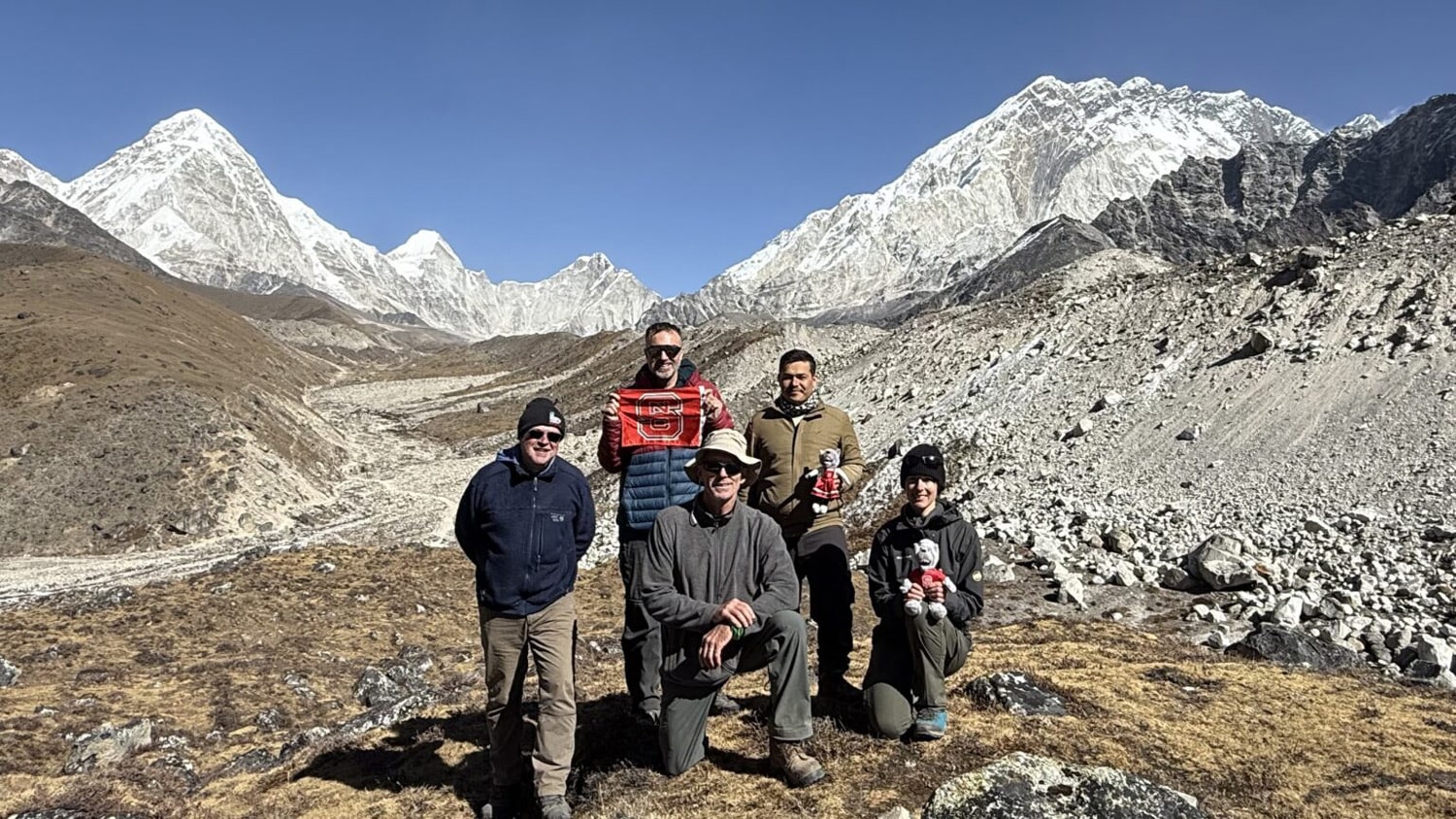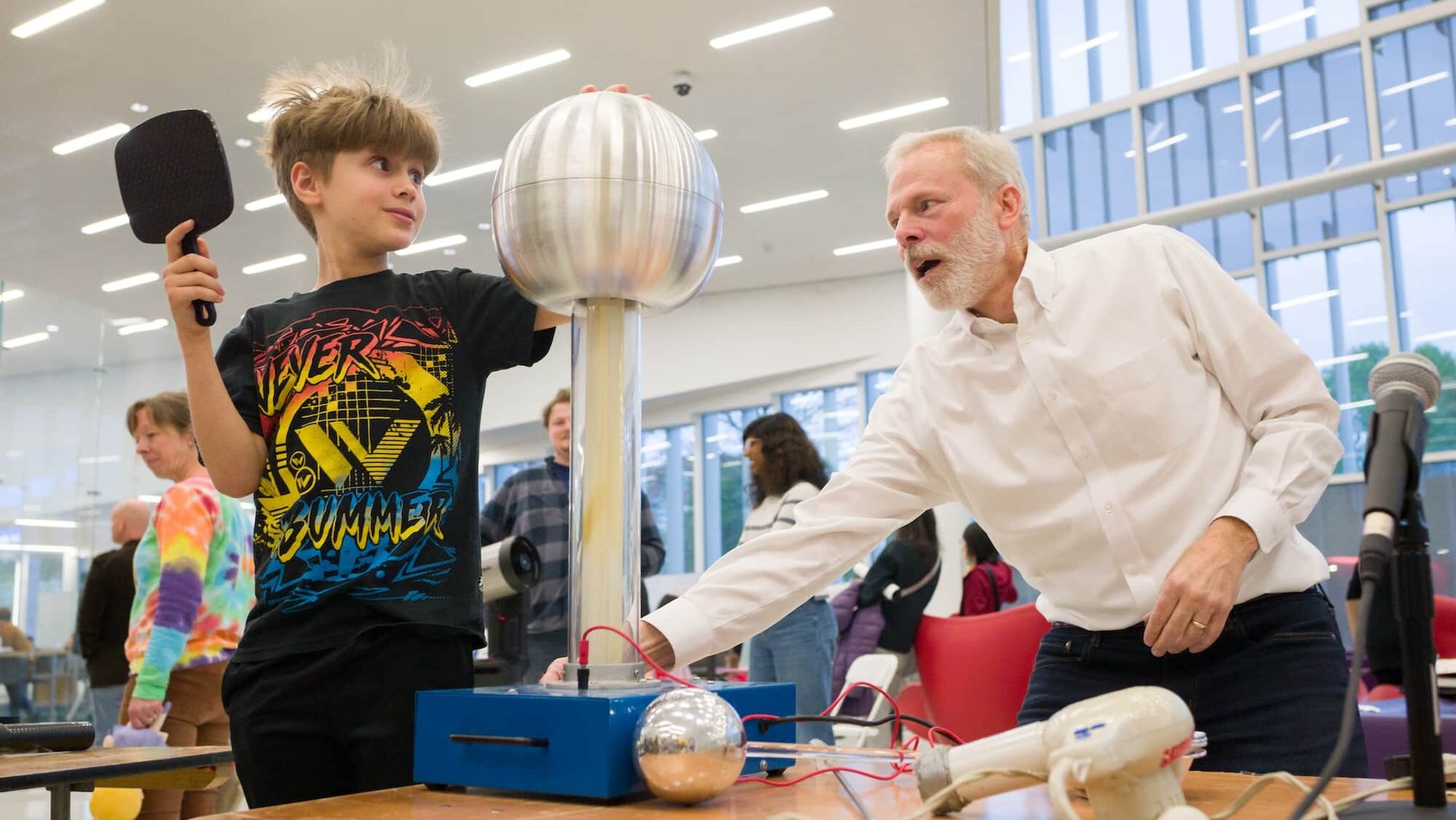Finding Her Path

Christina LaMaire stood before hundreds of NC State University’s most generous supporters in Reynolds Coliseum last fall and told them about her plans for the future.
Her goal? A career in genetic counseling.
But that’s not all. LaMaire, a junior majoring in genetics and minoring in psychology, also told the crowd how their generosity impacts NC State and influences students like her.
“I want to be like all of you here tonight — mission-minded and willing to invest in others,” she said to the group assembled to kick off the Think and Do the Extraordinary Campaign in late October. “Thinking of others has become part of my core value system.”
The university plans to raise $1.6 billion to support students, faculty and other priorities during the Campaign, which ends in 2021.
LaMaire knows the difference such investment can make. The Winston-Salem native came to NC State as a Goodnight Scholar. The scholarship program, established in 2008 with a generous gift from NC State alumni Jim and Ann Goodnight, targets North Carolina residents from middle-income families who aspire to study a science, technology, education, mathematics or STEM-related education discipline at NC State.
“My scholarship brought me to NC State, where I found my path,” LaMaire said.
Goodnight Scholars receive a scholarship valued at $19,500 per year for up to four years. They also have the opportunity to participate in a series of initiatives that cultivate professional and personal skills.
LaMaire said her “heart soared” when she found out about her scholarship award. It opened doors to more opportunity while easing financial pressure on her family. LaMaire and her siblings were raised by a single mother. Her father, who had been diagnosed with leukemia when she was a toddler, passed away when she was only 4.
LaMaire credits skills in public speaking and networking developed through the Goodnight Scholars Program with helping her land an internship last summer in NC State’s Comparative Medicine Institute. During the internship, she conducted genetics research with faculty and other researchers.
“I was able to interact with academia in an entirely new way. I felt less like an outsider earning a degree and more like a researcher, actually contributing to my field of interest,” LaMaire said. “Whether or not I pursue research opportunities after graduation, undergraduate research has been instrumental in my confidence in confronting challenges.”
That personal growth extended beyond classrooms and laboratories. During her freshman year, LaMaire participated in an Alternative Service Break trip to Trinidad and Tobago, where she performed environmental service work in the rainforests of the Arima River region. As a sophomore, LaMaire led the inaugural Goodnight NC: Mountains to Coast trip, during which students visited middle schools in rural, low-income communities across North Carolina for STEM outreach.
In 2015, an enrichment grant through the Goodnight Scholars Program allowed LaMaire to participate in a six-week trip to northwestern Australia, led by the National Outdoor Leadership School (NOLS).
“As someone with scant international travel experience, waking up to kangaroos and cassowaries and watching the eyes of saltwater crocodiles in water-filled gorges was incredible,” she said. “Aside from these experiences, my classmates and I completed the NOLS curriculum, which includes classes in leadership, wilderness medicine and conflict resolution — all of which have better prepared me for any role in which communication and leadership are relevant.”
LaMaire also said her mentor, fellow Goodnight Scholar Katie Almasy, has played an important role in her success at NC State.
“Her support not only allowed me to adjust to an entirely new school, but also determine that genetic counseling is my passion,” LaMaire said. “Even though Katie is a chemistry major as I was in the past, her encouragement and advice was instrumental in shaping my post-graduation goals.”
Also key in shaping the future for LaMaire and thousands of other NC State students is philanthropy.
“You can measure the impact of generosity quantitatively, with the number of students supported and other figures — however, it’s what can’t be measured that is the greatest outcome,” she said. “Human potential doesn’t have a scale or unit associated with it. For a student who comes from a difficult home situation and has already beaten the odds to apply to college and get in, private support can make the difference between this student never attending college and the same student becoming a leader.”
This post was originally published in Giving News.
- Categories:


